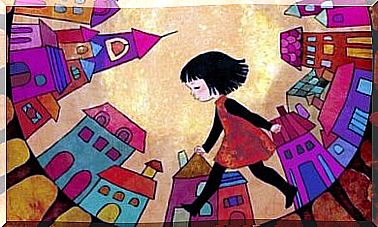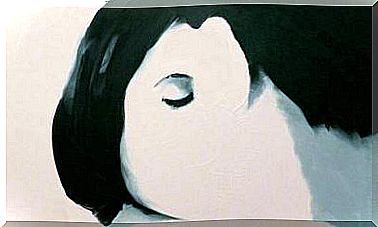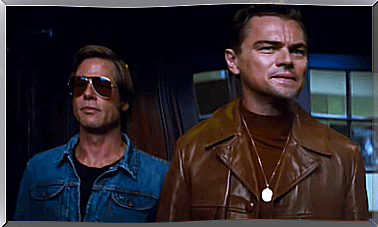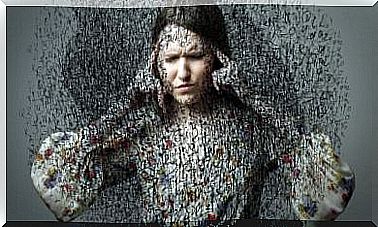Why Is It So Hard For Us To Live In An Instant?

Carpe Diem, the famous utterance of the great Roman poet Quinto Horacio Flaco, translates into Finnish as “grab a moment”; in the sense that we would not waste it. The whole sentence in its original language goes like this: Carpe diem, quam minimum credula postero , which we could translate roughly like this: “Take advantage of this day and don’t trust tomorrow”. And yet, it is still so difficult for us to live in an instant.
At first glance, it’s easier to let the day go on track and let tomorrow come than to “seize the moment”. What does this really mean? It means that for many of us, it is simply impossible to live in the moment and focus on this and now. They are people dependent on their past who need yesterday to live in the present, angrily attacking their own thoughts.
The worst part here is that we don’t know if this ability was taken away from us with “civilization”. Why is it so hard for us to live in an instant? Does this have to do with human evolution?

We are unable to live in the moment and now because we judge ourselves and others
At his masterful conference in Barcelona, the German spiritual teacher and author Eckhart Tolle revealed the misfortune that we humans carry with us. We are prisoners of our mental, material and emotional states. We no longer see them as temporary spaces, but begin to see ourselves in them. We are no longer present because we want to feel satisfied spiritually.
However, this has nothing to do with self-centeredness or paralysis. Vice versa. No one doubts or argues that we should do “different things” in this world.
The core is to do things and at the same time be present with what we feel without judging it or feeling constantly being judged on it. Living in the moment is the most mature form of commitment and character.
Unification with the present: absence of ego and guilt
Sometimes the release from the captivity of mental spaces is very similar to a pleasant contact with a baby, nature, or animal. It will be interesting to see how a person spends time with someone who doesn’t judge him, but who also doesn’t praise and flatter him. Some people let their firewall fall where others hide behind it. On the other hand, some people are able to relax and reconnect with the present when they feel they are not being judged.
Others, on the other hand, think they have to constantly present something. In this case, man has both difficulties in encountering and reconnecting with the present and a problem with excessive narcissism and ego.
These people may lack another person’s good company or they should simply avoid the company of some people. Or, in the most difficult case: they make their own company tolerable without constant evaluation, leaving behind all the guilt of what they have done or what they are going to do. They view life as the audience of their minds and the protagonist of the situations.
We are given the opportunity to connect with the present when we accept our state of mind in a radical way without moral or intellectual submission to them; as we reflect on the different forms of the world without feeling at the same time that they define us. This is the difference between excessive intellectuality and true wisdom.
A moment of resignation from living because of indifference and Western culture
In Western culture, letting go of something dear or important is hard to understand. We refuse to let go and we just hold on tighter.
When we have a family, friends, or partner, we believe it will last forever. And we suffered, what happened happened. And this suffering arises from our inability to let go. We suffer because we cannot feel free and unable to connect with the present moment.
If we believe that something is constantly dependent on us or that we are dependent on other people, living in the moment and reuniting with the present is much more difficult.
It may take months or years before death to accept the loss of a loved one, even though it is a normal process in the cycle of life. Everything always leads to death. Death itself is not sad and painful, but painful is the refusal that death is part of the normal cycle of life.
In terms of our own mental health, we need to be able to stop and live in an instant
For us Westerners who live in a consumer society and an era where productivity must be achieved at all costs, this exploration and focus on the present is almost a luxury. Who among us actually has time to stop to enjoy the morning breeze or the smell of moist grass?
We all live under the impression that we should be on the move all the time. For the most part, this race becomes a routine, forming a heavy burden.
Our daily lives are empty and we always dream of the next weekend, the next vacation or even retirement. We work all day thinking about what we eat in the evening. Sunday is full of anxieties on Monday. Our present seems so dull and empty that we run away from other worlds.
Living here and now is easier if we take our own values into account at the same time
In a society that values performance, the concept of “here and now” may come as a surprise. Namely, it can even be synonymous with laziness and carelessness. However, this is not a cheap philosophy.
The present takes on meaning through the past and the future. It’s not a still photo, it’s part of a movie. We need to know where we are coming from so we can do things that will build the future. Here we can take the problems of our environment, for example: we are acting now knowing that our actions will have an impact in the future.
Fighting the exhaustion that forces us to stop, we end up wondering what all this means. And this is something that is often missing from our lives: some meaning. It is important to know what motivates our actions and choices.
However, this does not mean that we should set spectacular goals for our lives. Giving meaning to life is about finding the things that matter most to us, and through that, all the efforts and actions that are guided by our pre-set priorities. These priorities can be, for example, family, love, or our own children. Only with a clear and sensible purpose for us can we really stop for a moment and taste the path that leads to the goals we set.

Live in an instant to create memories that relate to your values
When we stop to enjoy the moment, we build the happy memories of our senses. Some shamans call these happy memories “warm memories”. Unlike the “cold memories” forged by our intellect, these memories are permanent and give us comfort.
If our well is empty, if we haven’t stopped for a moment to enjoy the small moments of happiness in life because we were too busy running from place to place, we get the impression that our life is lacking in content. The result of this observation often leads to a so-called “quarantine crisis”.
Why do we sometimes give up the opportunity to live in the moment?
The mere feeling that we are healthy and living, here and now, can be a cause for joy. Still, it is imperative that we stop for a moment and appreciate it. Indeed, it is the advice of author Sarah Ban Breathnach to keep a diary in which we write five things every night that we feel grateful for. This way we can understand that we are much more prosperous and we can do better than we think.
We have been crushed by various expressions such as “your present depends on your past” or “you have to create a good future yourself”. These expressions have led us to associate the present value with vanity, invisibility, or even inaction. A person who does not think of a good past and a promising future is a lost person. Thus, in some vulnerable people, these messages crystallize into anxiety, overactivity, or even depression.
The only way to heal is to make room for all the things that happen in your life in a present way and to be vigilant and interested in what is happening in the present while embracing that in reality nothing is so horrible when we can only connect with the world. In many cases, unpleasant things happen only in our own minds, trapped in a world of social forms and not behind their essence with their open senses.









